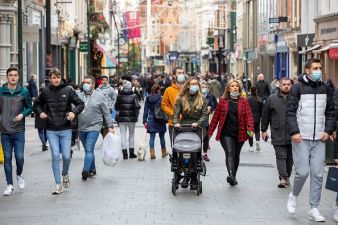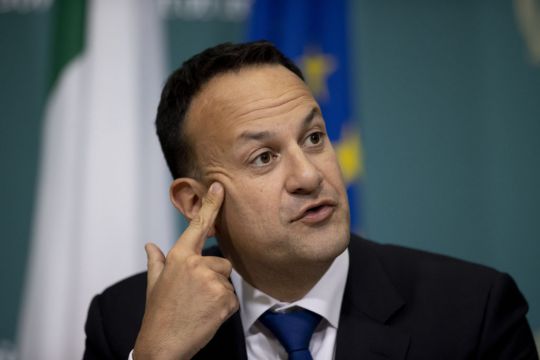Ireland is “nowhere near where we need to be at present” to consider easing Level 5 restrictions, the Tánaiste has said.
Leo Varadkar told the Dáil that the numbers surrounding Covid-19 were too high to consider lifting restrictions in the short-term, but that did not mean schools could not reopen in February.
His comments came as the number of people with the disease in intensive care hit a new high on Thursday, with 214 patients.
The Government is expected to extend Level 5 restrictions into late February, while plans for schools to reopen on February 1st have been thrown into doubt.
However, Mr Varadkar said while restrictions would be in place for some time to come, no formal decisions will be made until a Cabinet meeting next Tuesday.
“No decision has yet been made on restrictions, a decision will be made by Cabinet next week,” he said.
“I think it’s fair to say that we’re nowhere near where we need to be at present to ease Level 5 restrictions, but of course that doesn’t mean that schools can’t open in February.
“There is of course a possibility of opening more construction sites because they’re not supposed to be closed in normal Level 5.”
Third of patients
The Tánaiste also noted that the number of patients acquiring Covid-19 in Irish hospitals was of “real concern”.
“It seems that as many of as a third of patients in hospital got Covid in hospital. They didn’t come in Covid positive, they picked up Covid while in the hospital,” he said.
“Some of them may not be sick as result, they may be sick for a different reason. But it still is a matter of real concern that so many people are acquiring Covid in our hospitals.”
Speaking during Leaders’ Questions, Mr Varadkar said that while mass-testing sometimes takes place where there is an outbreak of coronavirus in hospital wards, this can often distract from patient care.
I can’t see any way that they wouldn’t extend it until the end of February
Separately on Thursday, infectious disease consultant at St James' Hospital in Dublin, Cliona Ní Cheallaigh, said an extended lockdown is necessary to prevent the health service from becoming overwhelmed.
“I can’t see any way that they wouldn’t extend it until the end of February, I mean we saw in December and January the consequences of freeing up when levels in the community are still quite high, and we’re certainly not at the stage where we could afford to do that yet,” she said.

Dr Ní Cheallaigh said there needed to be increased restrictions on international travel.
“There’s no point in getting (Covid-19) levels within the country down extremely low if we’re then not restricting people coming in,” she said.
“It’s very difficult because people can be asymptomatic, people can be PCR tested like we are seeing with the Australian Open, people can be PCR tested prior to travel and be incubating the disease and only turn positive afterwards.
“I think that’s a very difficult issue that we’re going to have to grapple with.”







